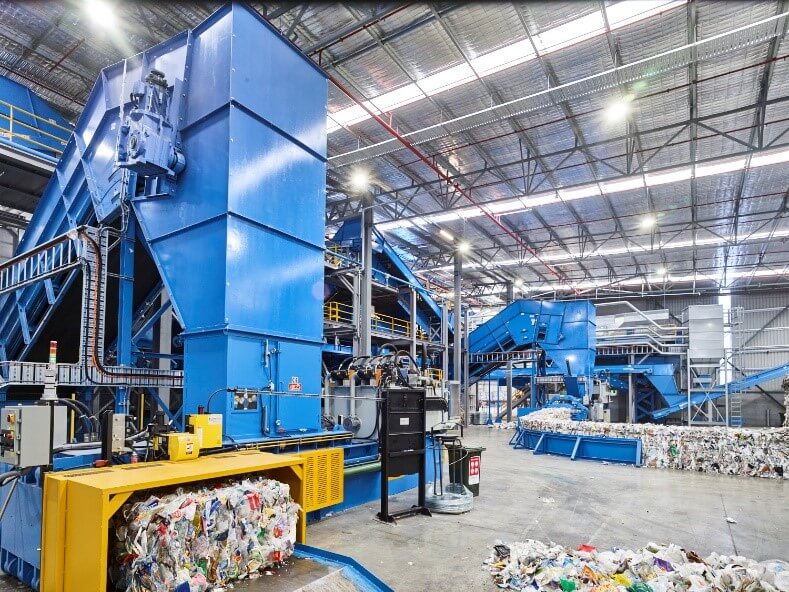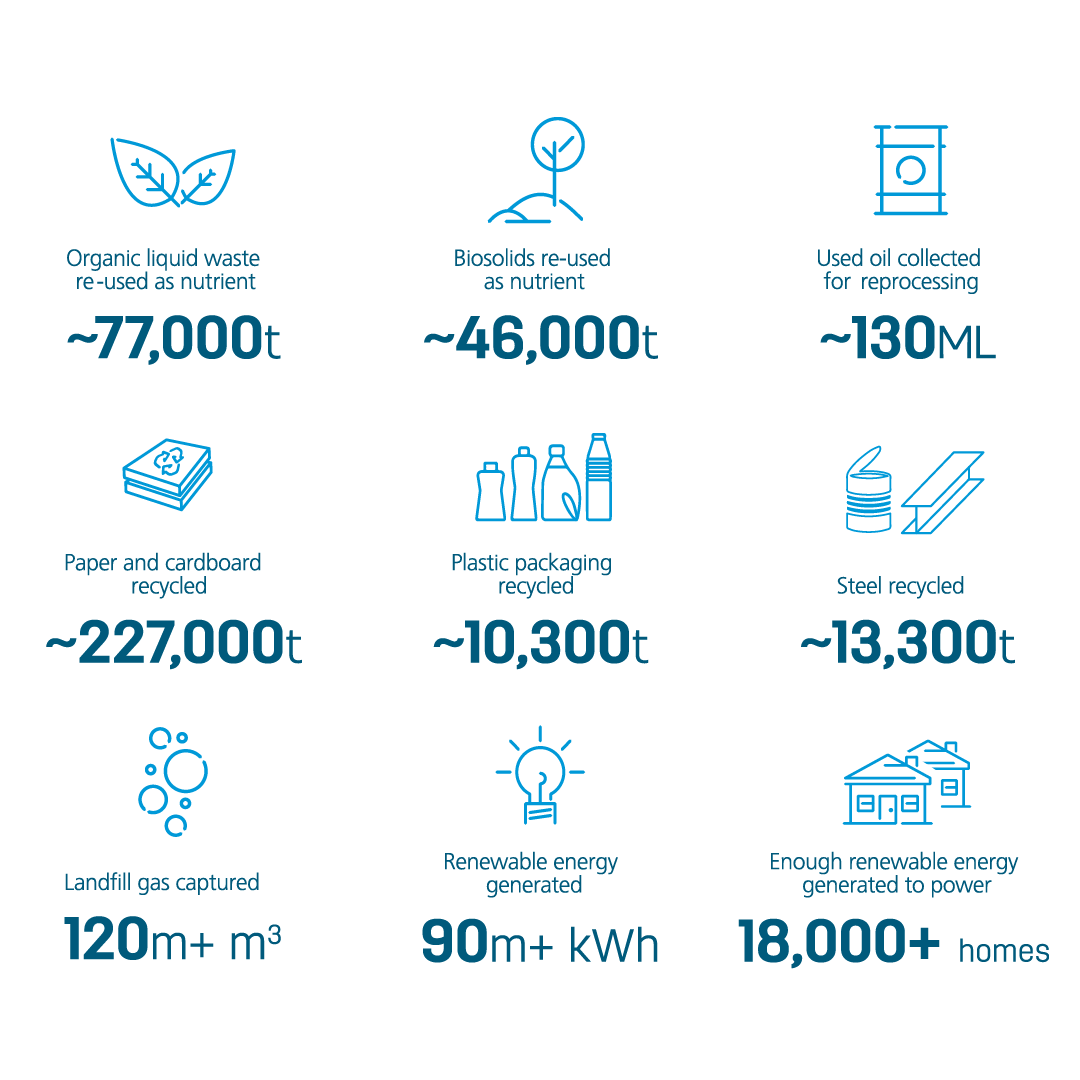China has implemented a policy to limit the import of low-grade plastic and contaminated materials from overseas markets. This policy, known as National Sword, bans some previously acceptable recyclables. In addition, unless materials are extremely clean (less than 0.5% contamination) and sorted into a grade that is accepted by processing mills, they will not be accepted by Chinese markets and exporters will be forced to pay for the cost of shipping back the rejected materials.
Many millions of tonnes of recyclable materials from all around the world that were formerly feeding mills in China are now competing for acceptance in other countries with smaller demand for this material. This increased supply is allowing these markets to be far more selective about what they will accept and has driven prices down.
This presents a challenge, or an opportunity, for Australian waste and recycling service providers, businesses, and individuals to improve our approach to recycling and reduce contamination. We must work together to maximise the value of recovered recyclables, and to maintain our focus on viable diversion from landfill.
What is the National Sword Program?
Historically, our ability to sell recovered commodities on the international market allowed us to heavily subsidise the cost of processing. However, in February 2017 The People’s Republic of China (China) announced their National Sword program, which is designed to reduce the importation of foreign waste and encourage the use of domestic materials. This decision along with further importation restrictions has decimated the commodity rates of many of the products we produce. The most substantial impacts are:
- Banning of all unsorted recovered paper products.
Recovered Paper Products that comprise various paper types will no longer be accepted as imports for recycling. MRF grades such as Soft Mixed Paper, Residential Paper and Old Newspaper (ONP) grades are included in this. Commercial collections of mixed paper cuttings from printers also fall under this ban. - Banning of all post-consumer recovered plastic.
Any plastic that has been used in any way is now banned. Some industrial collections of scrap/offcuts/purge from manufacturing using plastic will be accepted. - Reduction of tolerated contamination levels from 1.5% by weight to 0.5% by weight of carried waste.
Carried waste is defined as:- Foreign substances introduced into Imported Waste Paper during production, collection, packaging and transportation (excluding packing materials for the Imported Waste Paper and other substances that need to be used during the transportation process). This does not include any organic or putrescible material.
- In the case of paper imports, foreign substances include: wood waste, waste metal, waste glass, waste plastic, waste rubber, waste textile, spent absorbent paper, aluminium or plastic composite paper, thermosensitive paper, asphalt-coated moisture-proof paper, self-adhesive paper, wallpaper, waxed paper, wax dipped paper, oiled paper, silicon oil paper and carbon paper.
How will this affect you?
As the market has changed substantially, there is an impact on the cost to process recyclable material. This effect will be greatest if there is substantial contamination in commingled bins.
The decline in market pricing means that the value of recovered commodities will no longer subsidise the cost of sorting and processing mixed recyclables. As a result, the cost structure for commingled recycling may change from a free service, or in some cases a rebate service, to a cost for councils, ratepayers, and businesses.
In addition, contaminated commingled products will attract additional fees. Commingled recycling bins that are detected to include non-compliant items like food, textiles, timber, and e-waste, will not be collected. A subsequent service will be required and will be charged as general waste.
Where contaminated bins are inadvertently collected, the service fee will be adjusted to reflect general waste.
How can you make your waste more recyclable?
- Cleanaway can work with you to review your waste profile and evaluate the potential to move from a commingled service to a cardboard collection service. By sorting more recycling at the source, we improve the quality and reduce instances of contamination.
- If commingled recycling is still the best solution for you, make sure you understand what is compliant, and what is contamination. Set up bin stations to support your teams to recycle correctly. Cleanaway can provide education and best-practice bin set-ups for your site or office.
- Help your teams understand the impact of contamination including how it affects recycling and your sustainability targets.

Cleanaway’s commitment to resource recovery
Cleanaway has been processing recyclables on behalf of our customers for almost 30 years. We were the first to introduce recycling collections and the first to build and operate mechanised Material Recovery Facilities for the sorting and baling of commingled recyclables.
Last year, we reaffirmed our commitment to recycling by constructing one of the largest and most advanced recycling facilities in Australia. This $25M infrastructure investment in Perth was made to ensure the long-term capacity to process recyclables for our Western Australian customers.
https://www.youtube.com/watch?v=sYMPDIAG_WI
We will continue to take a lead role in developing improved industry standards that seek to maintain and increase the level of household and business waste that is diverted from landfill.
Cleanaway has a clear mission to make a sustainable future possible, and we are committed to our Footprint 2025, which will create a strong infrastructure footprint to drive resource recovery and waste to energy initiatives.
As the largest waste management services provider in Australia, we will continue to work with our customers and partners to leverage existing recycling practices and to explore future opportunities.
Contact us for more information on how we can support you to manage your waste better.
